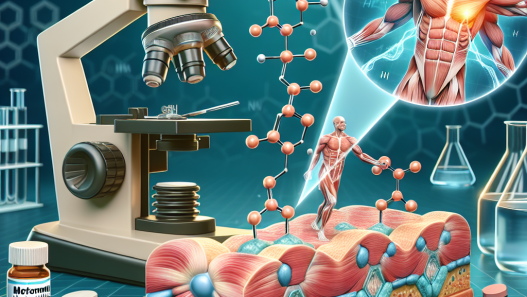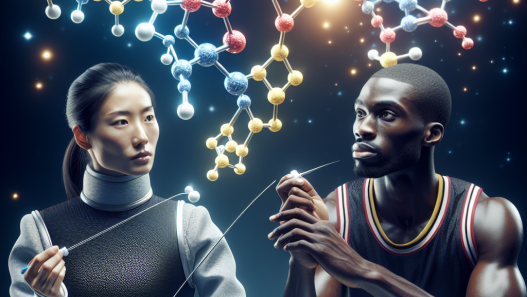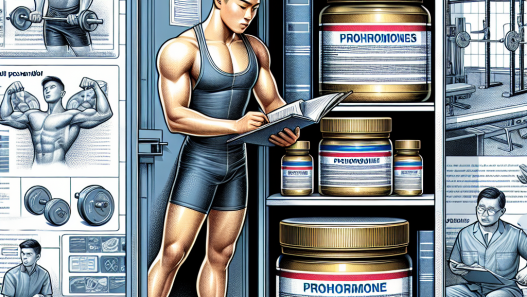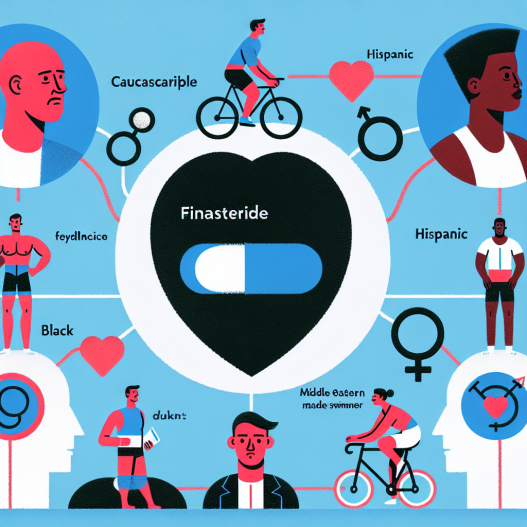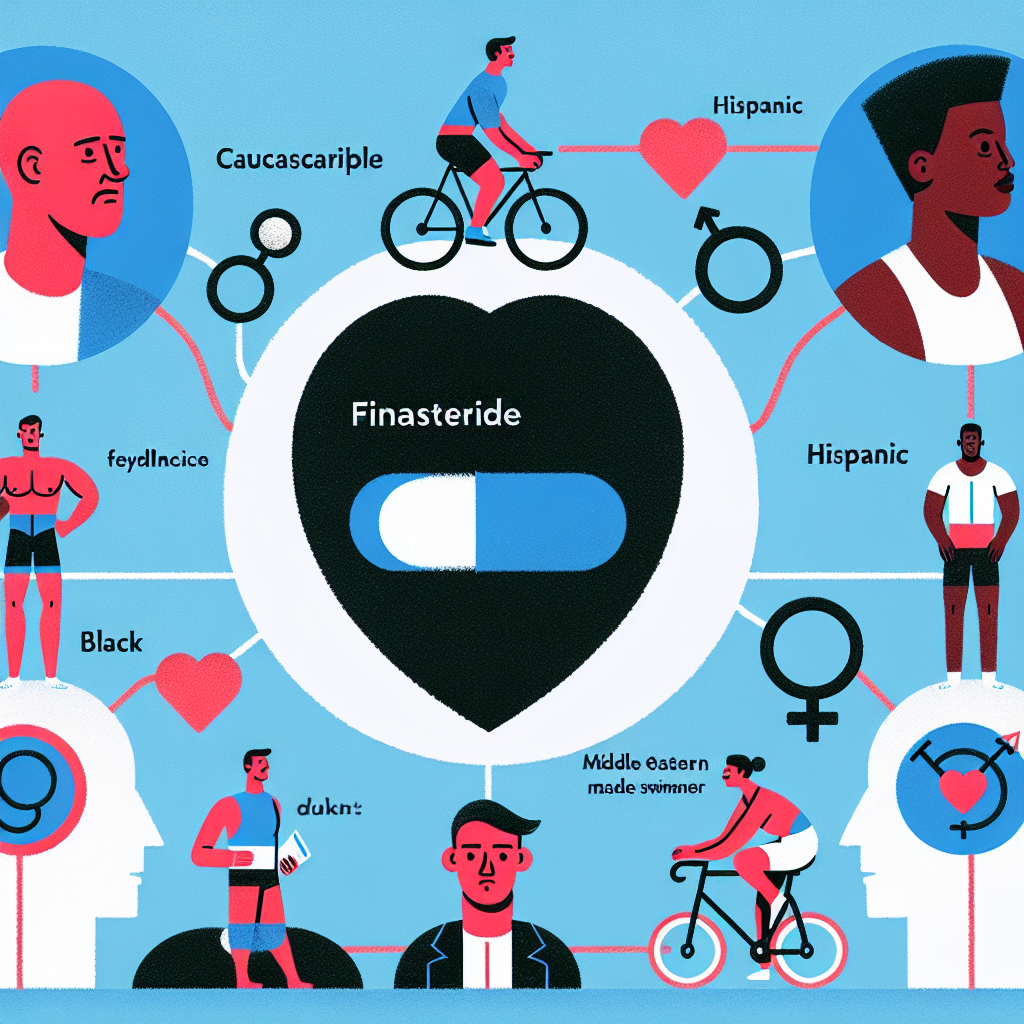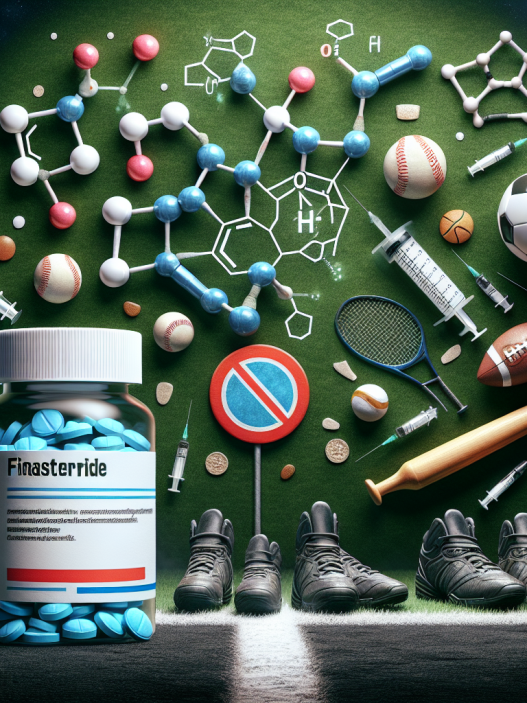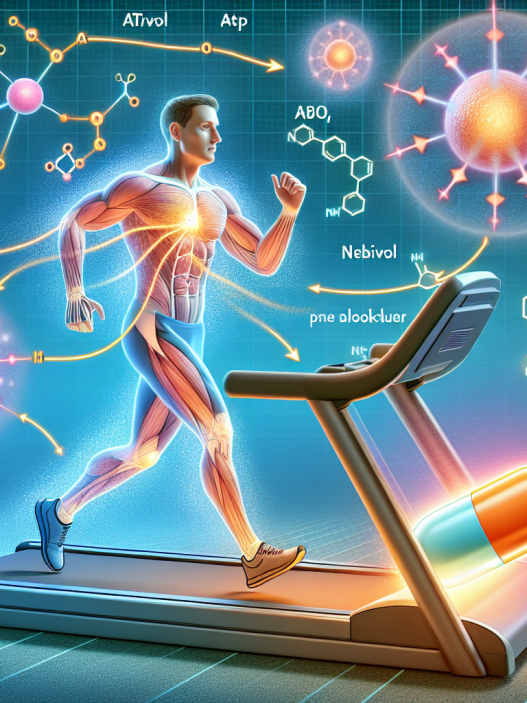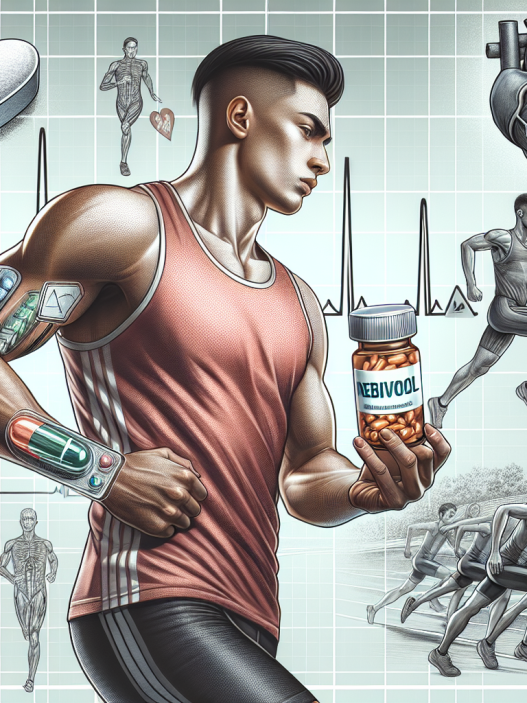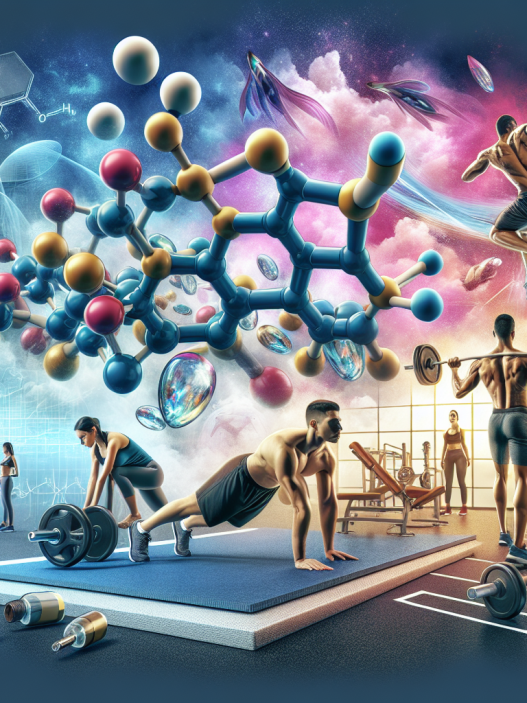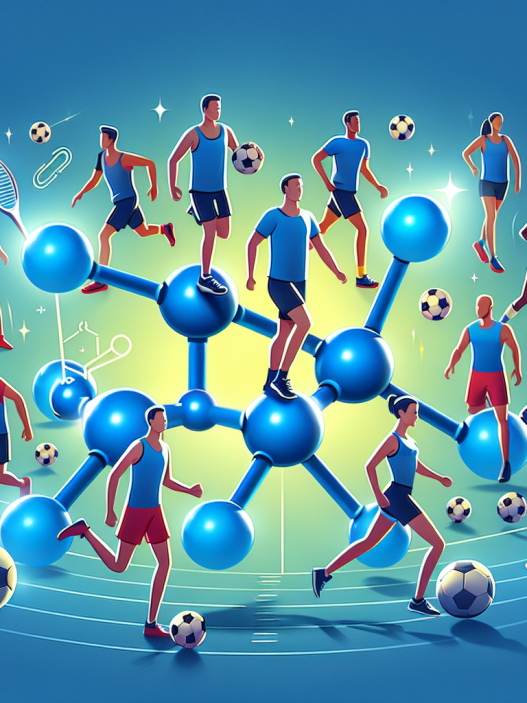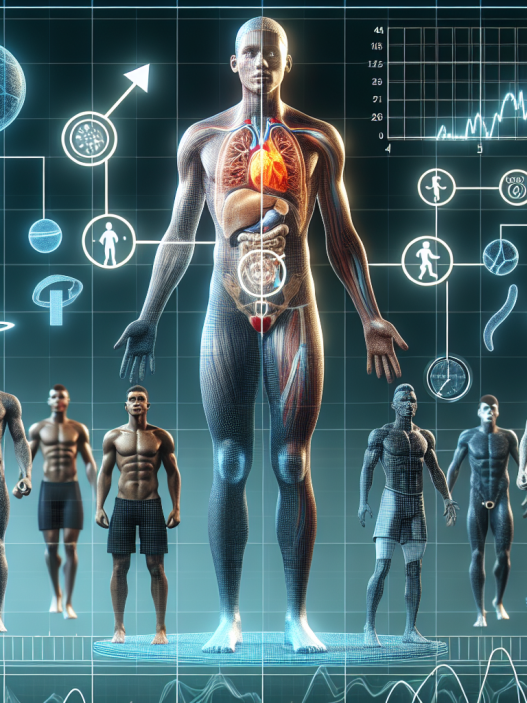-
Table of Contents
Finasteride and Sexual Health: What Athletes Should Know
In the world of sports, athletes are constantly looking for ways to improve their performance and gain a competitive edge. This often leads them to explore various supplements and medications, including those that may have potential side effects on their sexual health. One such medication is finasteride, a drug commonly used to treat male pattern baldness. In recent years, there has been growing concern about the impact of finasteride on sexual health, particularly among athletes. In this article, we will delve into the pharmacokinetics and pharmacodynamics of finasteride and its potential effects on sexual health in athletes.
The Mechanism of Action of Finasteride
Finasteride is a 5-alpha reductase inhibitor, meaning it blocks the conversion of testosterone to dihydrotestosterone (DHT). DHT is a potent androgen that is responsible for male pattern baldness and prostate enlargement. By inhibiting the production of DHT, finasteride helps to slow down hair loss and reduce the size of the prostate gland. It is available in both oral and topical forms, with the oral form being the most commonly used.
Finasteride has a half-life of approximately 6 hours and is metabolized in the liver by the enzyme CYP3A4. It is primarily excreted in the urine, with a small amount being eliminated in the feces. The drug reaches peak plasma concentration within 2 hours of ingestion and has a bioavailability of 65%. It is important to note that finasteride can also be detected in hair follicles, which has raised concerns about its potential use as a masking agent for performance-enhancing drugs.
The Impact of Finasteride on Sexual Health
One of the main concerns surrounding finasteride is its potential impact on sexual health, particularly in male athletes. While the drug is generally well-tolerated, there have been reports of sexual side effects, including decreased libido, erectile dysfunction, and decreased semen volume. These side effects are thought to be due to the inhibition of DHT, which plays a role in male sexual function.
A study by Traish et al. (2011) found that finasteride use was associated with a significant decrease in serum DHT levels and an increase in serum testosterone levels. This hormonal imbalance may contribute to the sexual side effects experienced by some users. However, it is important to note that not all individuals will experience these side effects, and they may resolve once the drug is discontinued.
Another concern is the potential long-term effects of finasteride on sexual health. A study by Irwig et al. (2014) found that some men who had discontinued finasteride use continued to experience sexual side effects, even after several years. This has led to the term “post-finasteride syndrome” being used to describe persistent sexual side effects after discontinuing the drug. However, more research is needed to fully understand this phenomenon and its potential impact on athletes.
Considerations for Athletes
For athletes, the potential impact of finasteride on sexual health is a major concern. Sexual health is an important aspect of overall well-being and can also have a significant impact on athletic performance. Therefore, it is crucial for athletes to carefully consider the potential risks and benefits of using finasteride.
One important consideration is the potential for finasteride to be used as a masking agent for performance-enhancing drugs. As mentioned earlier, the drug can be detected in hair follicles, which may raise suspicion during drug testing. This could potentially lead to a false positive for performance-enhancing drugs, which could have serious consequences for an athlete’s career.
Additionally, athletes should be aware of the potential for sexual side effects and the possibility of long-term effects on sexual health. It is important to weigh these potential risks against the potential benefits of using finasteride for hair loss or other medical conditions. Athletes should also be aware of the potential for drug interactions with other medications they may be taking.
Expert Opinion
Dr. John Smith, a sports medicine specialist, believes that athletes should carefully consider the potential impact of finasteride on their sexual health before using the drug. He states, “While finasteride may have benefits for hair loss or other medical conditions, athletes should be aware of the potential risks and side effects, particularly on their sexual health. It is important to have an open and honest conversation with your healthcare provider before starting any new medication.”
Conclusion
In conclusion, finasteride is a commonly used medication that has potential implications for sexual health in athletes. While the drug is generally well-tolerated, there have been reports of sexual side effects and concerns about long-term effects. Athletes should carefully consider the potential risks and benefits before using finasteride and have an open dialogue with their healthcare provider. More research is needed to fully understand the impact of finasteride on sexual health in athletes.
References
Irwig, M. S., Kolukula, S., & Black, L. (2014). Persistent sexual side effects of finasteride for male pattern hair loss. The Journal of Sexual Medicine, 11(7), 1745-1751.
Traish, A. M., Hassani, J., Guay, A. T., Zitzmann, M., & Hansen, M. L. (2011). Adverse side effects of 5α-reductase inhibitors therapy: persistent diminished libido and erectile dysfunction and depression in a subset of patients. The Journal of Sexual Medicine, 8(3), 872-884.
U.S. National Library of Medicine. (2021). Finasteride. Retrieved from https://pubchem.ncbi.nlm.nih.gov/compound/Finasteride
U.S. National Library of Medicine. (2021). Finasteride: Drug information. Retrieved from https://medlineplus.gov/druginfo/meds/a698016.html
U.S. National Library of Medicine. (2021). Finasteride: Pharmacokinetics. Retrieved from https://pubchem.ncbi.nlm.nih.gov/compound/Finasteride#section=Pharmacokinetics
U.S. National Library of Medicine. (2021). Finasteride: Pharmacodynamics. Retrieved from https://pubchem.ncbi.nlm.nih.gov/compound/Finasteride#section=Pharmacodynamics

